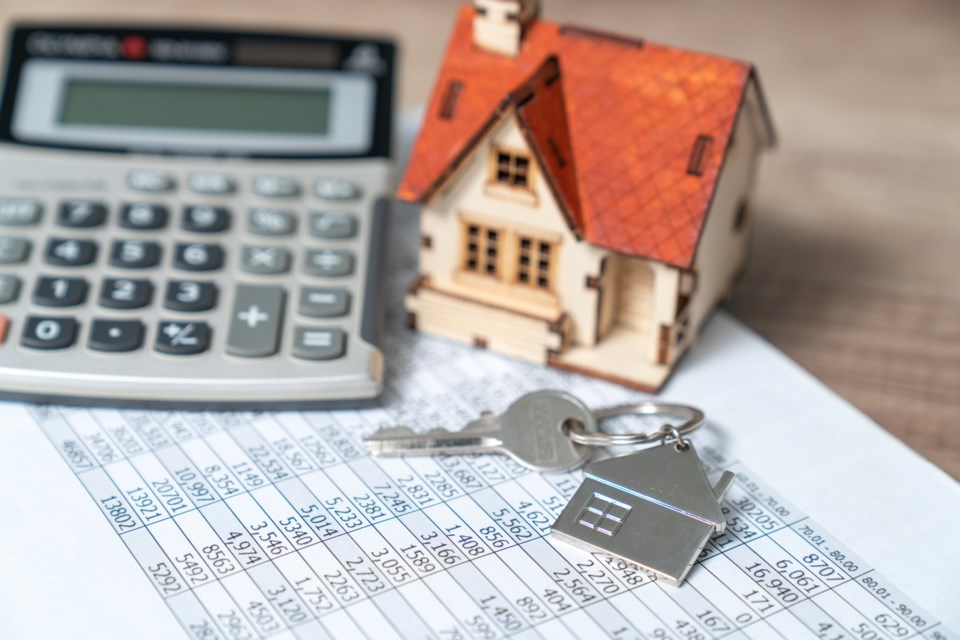We’ve heard plenty of stories about how the rise in interest rates is hurting many mortgage holders, but it’s not just working families or individuals feeling the pressure.
A West Kelowna senior recently contacted Castanet about her dire situation. Evelyn Stephen, 74, says her mortgage payments have doubled. On top of that, she has been forced to pay back CERB that she claimed during the pandemic, believing that she was eligible for the emergency support.
She’s tried to get provincial financial assistance, but says even her modest income of $2,144 a month is too much to qualify.
“Unless you’re making maybe $1,500 a month there really isn’t much help anywhere. And that’s a ridiculous amount,” said Evelyn, who moved to the Okanagan from Victoria a couple of years ago to be closer to her daughter.
She had rented in Victoria, but decided to buy a condo in West Kelowna. Evelyn says the only kind of mortgage she could get was a variable rate mortgage. At first it was affordable, but now she’s had to dip into her retirement savings to cover her escalating costs.
“If I had know what the interest rate was going to do I would have stayed where I was,” she said.
Unfortunately, hers is not a unique situation. BC’s seniors advocate says about 20% of seniors have mortgages and many are facing rising rates on a fixed income.
She’s advocating for changes to the BC Property Tax Deferral program, which allows those over the age of 55 to put off paying all or a portion of their property taxes until their home is sold.
“If you’re a senior in a condo and let’s say you own your condo, if the government was to say, OK, we’ll pay your property tax, your hydro bill, and your strata fees, you can probably live there quite comfortably,” explains Isobel Mackenzie.
She’d also like to see changes to the way the Canada Pension Plan operates.
“CPP is a fairly inadequate program, particularly for women. Maybe, 30 years from now it won’t be quite as inadequate for women because you’ll see women who have spent longer in the workforce.”
Mackenzie suggests there needs to be regional adjustments to account for much higher cost of living in cities like Toronto, Vancouver and Kelowna.
She’s very concerned to hear that a rising number of seniors are ending up homeless and living on the streets, saying the government are going to see the fallout in a spike to hospital visits and people ending up in long-term care sooner than they otherwise would.
Mackenzie urges anyone in Evelyn’s situation or one similar to hers to contact the Office of the Seniors Advocate of British Columbia for advice.
Another woman contacted Castanet about her crushing debt after taking out a second mortgage on a home she recently built. Adrienne is on a disability income, and she’s facing a huge fee from her bank if she wants to remortgage to consolidate her debt. She's resorted to renting out most of her home and living in just a few rooms.
So where should she turn? She could contact an insolvency trustee, or reach out to the Credit Counselling Society, which offers free advice.
“We are a not-for-profit organization that really our mission is to help, to education to give hope. We help people figure out what options are out there for them,” said Anne Arbour, director of strategic partnerships.
“That might include going back to your financial institution, finding a different financial institution or a different kind of lender.”
Arbour adds that the most important thing to do is ask for help, don’t just bury your head in the sand.
“Debt can feel very isolating and have a lot of shame wrapped up in it but people are certainly not alone. This is an issue, in one form or other, for a lot of people in this country.”
Last week, MNP published a poll that showed more than half of British Columbians (52%) are $200 away or less from not being able to pay their monthly bills. That’s an 8% increase from the prior quarter.


